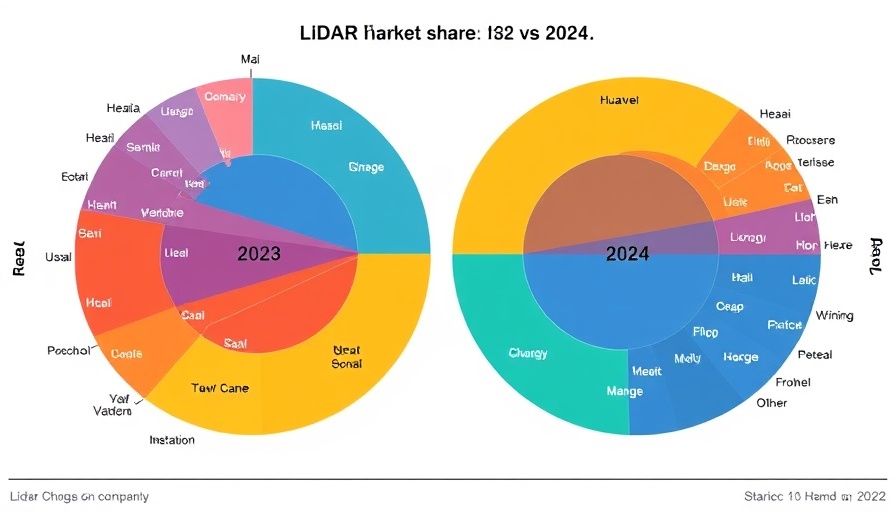
The Rise of Lidar Technology in the Automotive Industry
The lidar industry is stepping into a pivotal phase of growth, with Hesai Group firmly establishing itself as a market leader. This is largely thanks to the advancements in lidar technology that enhance safety and operational efficiency in both manned and autonomous vehicles. The latest report by Yole Group shows a remarkable surge in the market valuation, reaching $859 million in 2024—a 60% increase from the previous year. This growth signifies not just the technology's evolution but also its widespread adoption across various segments of the automotive industry.
Hesai's Dominance in the Market
Hesai has been recognized as the top automotive lidar company for four consecutive years, capturing a staggering 33% of the global market share in revenue. Their competitive edge stems from strategic partnerships with major OEMs, continual innovation, and rising demand, particularly in the Advanced Driver-Assistance Systems (ADAS) sector. With around 120 vehicle models adopting lidar since 2018 and almost half of these emerging in just two years, it’s clear that the market is rapidly evolving. The democratization of lidar technology is also noteworthy, with its increasing presence in affordable models, highlighting a shift from luxury vehicles to mass-market cars.
Understanding the ADAS Market Dynamics
The ADAS-enabled passenger vehicle market is exploding, driven by strong adoption in China. Notably, new launches like BYD’s “God’s Eye” system are transforming the competitive landscape, making lidar features more accessible to consumers. This shift has resulted in a significant growth rate of 68% year-on-year for the lidar passenger car segment. Such developments signify that lidar is no longer a niche market but is heading towards becoming standard technology in everyday vehicles.
Future Prospects and Innovations in Lidar
Looking ahead to 2025, it’s expected that lidar installations will surpass three million units, propelled by a wave of commitments from automotive players in China. Hesai’s ability to scale its operations will be crucial in maintaining its leadership position amidst this rapid growth. The investments in technological advancements are not just about meeting demand—they're about enhancing safety and reliability in vehicles, which is increasingly demanded by consumers.
Implications for Auto Dealerships
For dealership owners and general managers, understanding the impact of lidar technology is critical. As vehicles equipped with lidar become mainstream, sales training for auto sales personnel will need to adapt. Knowledge about lidar and its benefits can empower sales teams to effectively engage with customers, illuminating how these advancements can enhance vehicle safety and overall performance.
Conclusion: Emphasizing the Importance of Adaptation
In the competitive auto industry, keeping up with technological advancements is essential for success. The shift towards lidar-equipped vehicles represents a significant opportunity for dealerships to enhance their sales strategies and training programs. Keeping informed about these changes and preparing sales teams to effectively communicate the benefits of lidar technology will create a competitive edge in the market. Dealerships must prioritize understanding and selling the future of automotive technology.
 Add Row
Add Row  Add
Add 




Write A Comment